<>Blanc-Labo S.A. your laboratory equipment specialist
Proposed equipments: Phytotrons, Photobioreactors, Shaking incubators
On this page you will find the equipment most often requested from us for your research on algae: shaker incubators, algae growth chambers (also called phytotrons or algae growth chambers), special fermenters for algae (photo-biorecators )
These equipments are widely used to study the cultivation of algae (or algoculture), the fermentation of algae, the development of algae and their growth.
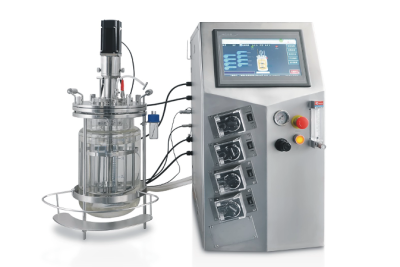
Benchtop fermenters and bioreactors
Benchtop fermenters and bioreactors Completely tailor-made based on a proven component base
More info
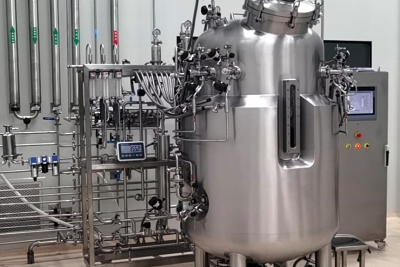
Steel pilot fermentors
Fermenters and bioreactors for the pilot phase, in stainless steel, from 5 to 5000L. Entirely made-to-measure on the basis of a proven components base
More info

Fermenteurs et bioréacteurs multiples
Fermenteurs et bioréacteurs multiples : jusqu'à 24 fermenteurs indépendants en parallèle pour accélérer vos recherches. Entièrement réalisés sur-mesure sur la base d'une base de composants éprouvée.
More info

Large volume 2-levels shaking incubators
These incubators have large volumes of 2 levels of 170, 330 or 580 L. Plain or drilled trays. Refrigerated or not.
More info
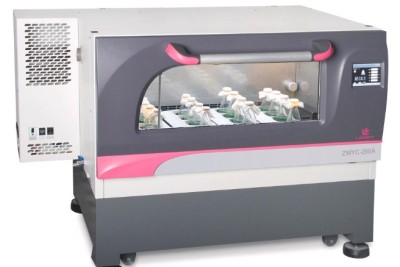
Stackable shaking incubators
Shaking incubators of 120, 190 or 257 L. With or without, CO2, Lights, Humidity. Solid or drilled trays. Stackable.
More info
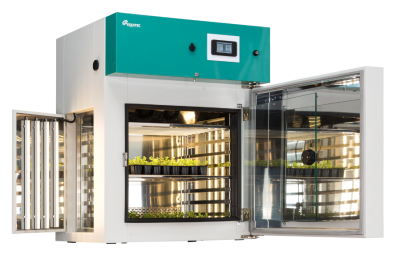
Illuminated incubators (Phytotron)
“Cabinet” type climatic chambers customizable according to your application: growth of plants, algae, insects, fish, animals, etc. Useful volumes from 60 to 2500L. With or without humidity. Large selection of LEDs available.
More info
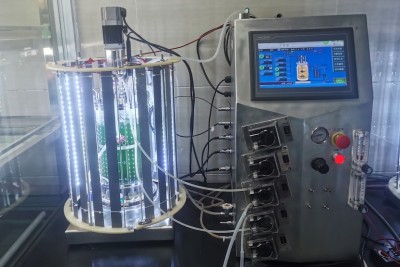
Photo-bioreactors for algae
Fermenters and bioreactors specially designed for the cultivation and study of algae. A lot of choice of volumes and lighting.
More info
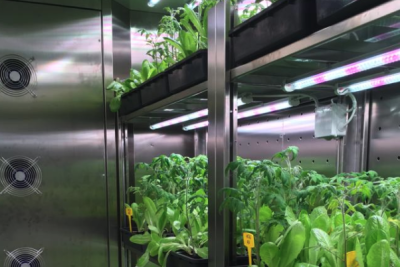
WALK-IN Climate rooms with light
WALK-IN climatic chambers made to measure for stability tests or cultures. Floor space from 1 to 50m2
More info
In recent years, our customers have been asking us for more and more equipment dedicated to the study of algae.
Indeed, algae are increasingly analyzed to find solutions for (i) CO2 capture, (ii) food security for humans or animals, (iii) the production of green energy and biogas. and this in a context of environmental sustainability.
Algae are rich in biomass which makes them an ideal choice for producing biofuels.
They grow rapidly and are rich in proteins, vitamins and minerals, hence hopes for improving food security in a context of growing populations and shrinking cultivable land.
And finally, their potential for capturing CO2 through photosynthesis needs to be studied and developed.
To illustrate the growing interest of European research funders for algae, here are some major programs launched by Europe:
AT-SEA aims to develop seaweed cultures in the open sea to produce sustainable raw materials for the food industry, chemicals and biofuels.
GENIALG seeks to develop a bioeconomy based on algae
MACROCASCADE focuses on the use of marine macro-algae.
ALGAECEUTICALS aims to study the therapeutic effects of algae
SEARefinery seeks to produce algae rich in proteins, juices and sugars, in a sustainable way, for use in the food industry.
